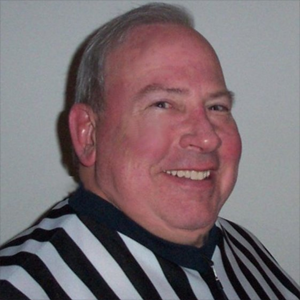I spent the five happiest years of my life in a morgue. As a forensic scientist in the Cleveland coroner’s office I analyzed gunshot residue on hands and clothing, hairs, fibers, paint, glass, DNA, blood and many other forms of trace evidence, as well as crime scenes. Now I'm a certified latent print examiner and CSI for a police department in Florida. I also write a series of forensic suspense novels, turning the day job into fiction. My books have been translated into six languages.
I don’t know what you’re referring to.
My guess is it depends on what you want to do. If you want to work in a lab, then biology for DNA or trace evidence or chemistry for toxicology would be the way to go. If you want to work in the field, mostly at the crime scene, then you might want the more general forensic science. Go on the websites of agencies and professional organizations, look at their vacancy postings, and see what they ask for. Best of luck!
Titles and job requirements aren't uniform, so the only way to know is to call the crime labs in your area or whereever you might be interested in working and ask them. At the coroner's office we had to have at least a bachelor's in a natural science (this was before they had forensic science majors). At the police department where I am now, they only require a high school diploma but you get more points in the interviewing process for having a four year degree, so we all have one. You can also go on the websites for professional organizations such as the American Academy of Forensic Sciences and check out their job vacancy postings and see what the various positions require. As for determining which area, I would suggest you visit crime labs in the area to see what they do and talk to the people working there. Good luck!
Why do you post questions that need to be deleted? Most people have better things to do.
Bracketologist
 Why have there been so many 15-2 upsets, but no 16-1's?
Why have there been so many 15-2 upsets, but no 16-1's?
Claims Adjuster
Basketball Referee
 Do you think the nets should be lower for girls?
Do you think the nets should be lower for girls?
See next answer.
I don't believe so, but I haven't done DNA analysis in 20 years so I'm not the best person to ask. I know there's an amylase test for saliva, but I don't know if it's used any more. And if you have a mixture I doubt it would be possible to tell what DNA is from what bodily fluid.
I think it would absolutely help your chances. But all agencies might not be looking for the same things. I would check the websites for all the agencies you’re interested in to see their job postings.
Best of luck to you!
-OR-
 Login with Facebook
Login with Facebook (max 20 characters - letters, numbers, and underscores only. Note that your username is private, and you have the option to choose an alias when asking questions or hosting a Q&A.)
(A valid e-mail address is required. Your e-mail will not be shared with anyone.)
(min 5 characters)
By checking this box, you acknowledge that you have read and agree to Jobstr.com’s Terms and Privacy Policy.
-OR-
 Register with Facebook
Register with Facebook(Don't worry: you'll be able to choose an alias when asking questions or hosting a Q&A.)